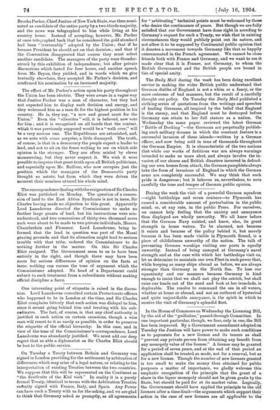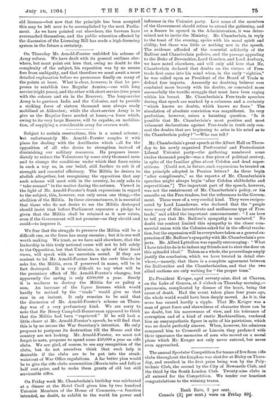In the House of Commons on Wednesday the Licensing Bill,
by the aid of the "guillotine," passed through Committee. In one important particular, though, we fear, only in one, the Bill has been improved. By a Government amendment adopted on Tuesday the Justices will have power to make such conditions as to payments for a new license and its tenure as shall "prevent any private person from obtaining any benefit from any monopoly value of the license." A license may be granted for a period of seven years, and at the end of that period an application shall be treated as made, not for a renewal, but as for a new license. Though the number of new licenses granted is too small to make the money thus obtained for public purposes a matter of importance, we gladly welcome this emphatic recognition of the principle that the grant of a share in the liquor monopoly should not be given gratis by the State, but should be paid for at its market value. Logically, the Government should have applied the principle to the old licenses after a time-limit—the arguments which support their action in the case of new licenses are all applicable to the
old licenses—but now that the principle has been accepted this may be left over to be accomplished by the next Parlia- ment. As we have pointed out elsewhere, the brewers have overreached themselves, and the public education effected by the discussion of the Licensing Bill has made a high-licensing system in the future a certainty.



































 Previous page
Previous page